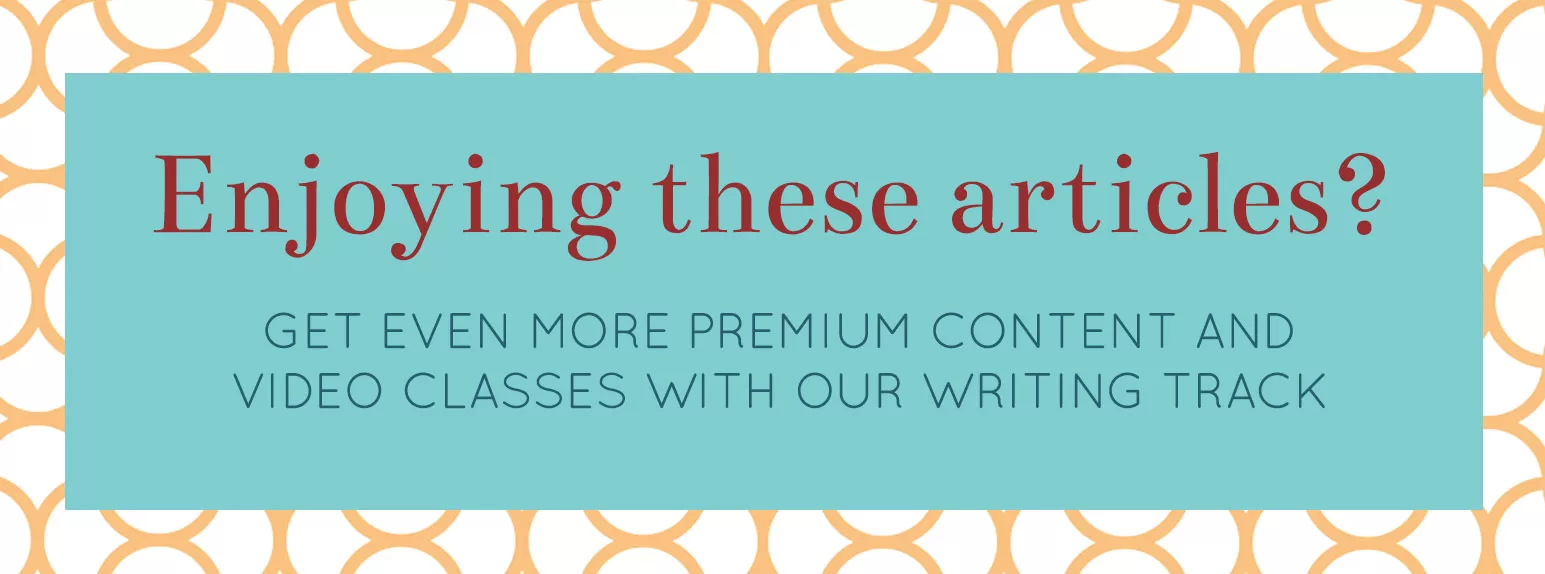Do It Again. Write Another Book.

Have you finished a manuscript or other piece of writing? Great! Now do it again. And again. And again.
Have you finished a manuscript? Congratulations! That’s is SO exciting—the kind that deserves some ice cream and/or chocolate…or if you prefer, a nice dinner out or your favorite pizza or a walk in the park. Whatever feels like a reward! If you’re like me, you’re probably feeling pretty giddy right after you type the last words. It doesn’t matter that there are edits ahead of you. It doesn’t matter that your road to publication might be a long one. It doesn’t even matter that you haven’t decided how you want to publish—traditional? Small press? Indie? Nope, doesn’t matter! All that matters is that, finally, you’ve FINISHED! Woot! Your love for the story is bright as the sun.

You Know the Work’s Just Beginning
And you think…this is the one. This is the book that’s going to be your debut. This story is IT. You promise yourself, then and there, you’re going to do what it takes to make it succeed.
Polishing? Until it shines, baby. Rewrites? However many times it requires. You’ll spend years perfecting it if you have to. Because your goal is to for it to be a breakout book. The thing that makes your name. Maybe you intend to pitch it to a traditional, big press. Maybe you want to make a big splash in the indie world. Whichever the case, you know it’s going to take hard work, and you are unafraid!

If You’re Pitching to a Traditional Publishing House…
Let’s take the first scenario: Traditional publication with a big press. You need to acquire an agent first, then pitch to editors. Let’s say your path for this takes the normal amount of time—years. But you do it! You make the connections, you build the relationships, and then finally, FINALLY, you get some interest from a publisher. They love your book. They love your writing. WOOT! That giddiness when you first finished the manuscript? Forget it—that can’t even HOPE to compare to THIS giddiness. After all, you just spent the last five years editing your manuscript and writing a proposal, making sure it’s so tantalizing that they snap up the whole planned series. And they DO. Score! Right?
But…wait. Look at that contract carefully. There are deadlines in there for the next books in the series. Kinda scary deadlines. You have five months to get them the next book. Months, not years. To write and edit and polish and perfect. Wait…what??
Cue the panic attack.
Or maybe you think, “I’ve got this. I can totally handle it.” So you agree, and you go for it. Then a year down the line, you find yourself balancing a release of book 1, edits of book 2, and writing of book 3, all at the same time. NOW cue the panic attack!
As both an editor and an author with lots of author friends and critique partners over the years, I can’t tell you how many times I’ve seen this. An author will focus so completely on that one manuscript, and they really get it to a fabulous point. It’s so polished and perfect that it’s no surprise when it gets snapped up.
But then the reality hits. It isn’t just the multiple deadlines, it’s the multiple deadlines for different stuff, on different books. Shifting from writing to editing to promotion and back again, across different projects and sometimes even different series. Your attention, previously dedicated so happily to one project, is fractured.

I have been repeatedly saddened by seeing so many amazing writers quickly burn out once they’re contracted. And why? Why do these pressured get to them? I have to think it’s largely because they had no idea how hard it would be to do the second or third or fourth books. Worse still, it shows in the work. Book one was awesome…but book two is lackluster. And book three is forced. And then…that’s it. Publishers don’t offer another contract. Or the author decides they’re going to pursue something else instead.
But that won’t be me, you might say. I’m going to go indie. No deadlines! No publishers breathing down my neck!

The Indie Route
Well, you’re right…and you’re wrong. In some ways it’s even harder when you’re self-publishing, because so much relies on MOMENTUM. The authors who tend to make it big in the indie world do so by writing FAST. They’re putting out books just a few months apart and riding the momentum of sales. That’s how they can put one book up for free or nearly-free and get the readers in—because they have multiple books out in the series. And that doesn’t work if each book takes 5 years to get out! Sure, there isn’t necessarily a team setting the deadline for you. But you run into the same thing regardless.
You have to write the next one. But you have to edit this one. But you have to promote the FIRST one. All at the same time. All the time.

Do It Again.
As an author, I decided early on that this wouldn’t be my downfall. “Burn out” wouldn’t be story. How? Simple.
Write another book. Or hey, not writing books at all? Great. Write another article. Write another script. Write another song. Write another poem. And then, when you’re finished that one, write another. And another. And another.
Waiting for critiques to come back from your friends on book 1? This is a perfect time to be working on book 2. Have a proposal out with a publisher? Forgot that annoying paragraph in chapter 16 that you just can’t get right. Doesn’t matter. Be working on something else. When an agent says, “Oh, this concept could be just the thing!” get excited, sure! But also be working on another concept, just in case the editors come back with, “Yeah…we already bought one like this. It releases in a month,” thereby making yours look like a copy.
And here’s one I get questions about a lot. Should you work on a sequel before book 1 sells? Here’s may answer: Sure! Of course! But…don’t JUST focus on that sequel. Create a new world too. Try out a new genre. Dip your toes in another era. If you’re writing non-fiction, try a different style, a different technique, a new way of arranging things.
Explore, discover, and build your experience everywhere you have interest.

Write Another Book.
Write another book. That way, if your first idea just isn’t resonating with agents and editors, you have something else to pitch. (And if book 1 in a series doesn’t resonate, chances are good book 2 or 3 or 7 isn’t going to either.)
Write another book. Because with each one you write, you’ll learn more. You’ll grow. You’ll discover. You’ll find your voice. You’ll find your passion.
Write another book. Because the more you write, the more you’ll understand your own rhythms and abilities and writing speed. And this is SO IMPORTANT. Because that way, when an editor asks, “How fast can you turn around a manuscript? Is six months doable?” you can say either “Yes, absolutely!” or “No, I need nine months to a year.” Write another book, because if you self-publish and it finds some readers, they’re going to want MORE, and you need to get it to them before they forget how much they loved it.
And that goes for EVERY writer, whatever path you take. Write another book. Because if your plans for your first one succeed, that’s the next step anyway.

What Happens When You Keep Writing
When you’re in the process, it can seem so long—especially if you’re pursuing traditional publication. I know that. I get it. I was in that place for YEARS. Querying and waiting and querying more and waiting and entering contests and revising based on feedback and then querying again. It’s hard. It’s exhausting. It’s discouraging sometimes. We just want to get somewhere with those manuscripts, and it’s hard not to pin our hopes firmly to that story we’ve spent so much time on.
But when I look back on my publication journey, one of the things I’m most glad I did was keep writing, even while I waited.
Before I put out my first book, I had eight manuscripts finished. Eight! Then we published that first one as the launching title with our own press, but I kept on seeking a bigger publisher too. So I kept writing. By the time I signed with my first big publisher, I had over a dozen manuscripts under my belt. Were they all great?
Ha! That’s funny. Um, no. Some were truly terrible. But you know what? I learned.
I learned how to write, and I learned about myself as a writer.
I knew that I could complete a book in three months.
I knew I could write contemporary but preferred historical.
I knew that my strengths were dialogue and wordplay, and that endings were a bear I wrestled with each and every time.
And when an editor said, “Love your writing but this story’s not for us, what else do you have?” I could send them a list and see what they got excited about. (Which worked, by the way! Both of the first two big houses I signed with bought the second or third thing I pitched to them.)
But most of all, because of those manuscripts already written, I could assure my editors that producing wasn’t a problem. I knew that I could write books 2 and 3 in the timeframe they needed. And I could write them to the same level that I did the first. This is a biggie!! As an editor, let me assure that I can tell when you’ve spent six years on your first manuscript and then don’t quite know how to condense that into six months for the next one. It’s dreadfully, horribly, sadly obvious, because all that beauty and polish and shine and skill just isn’t there.
So know. Train yourself now. Set yourself deadlines just to see if you can meet them. Set yourself daily word goals, weekly word goals, and a date by which you want your MS done. When you get critiques back, give yourself only a couple weeks to get their suggested revisions done. Decide you want to do a major overhaul? Two months, no more. You get TWO MONTHS to do it—because that’s the longest you are likely EVER to have to turn around a macro/content edit. Better yet, try to do it in ONE.

Be Encouraged!
And be encouraged. Because every book you write could be The One. The breakout. The foot in the door. The thing that gets you noticed. And even when it’s manuscript number 12 that finds a home at your dream publisher, that doesn’t mean 1-11 have been wasted or will never see the light of day. My tenth published book, which has sold more than any other of my titles (and more than many of them combined), was a revision of my first book, that I wrote when I was thirteen. I had one manuscript sit in my drawer, finished, for nine years before my publisher took it off my hands for me and slipped it in between two other series as a stand-alone. I’ve had another that was an complete overhaul of a book I wrote nineteen years earlier.
So yes, edit. Revise. Perfect. But keep writing more things, different things, other things. Love the one you finished and give it the attention it deserves … and then move on. Keep learning. Keep exploring.
And write another book.


Trackbacks/Pingbacks